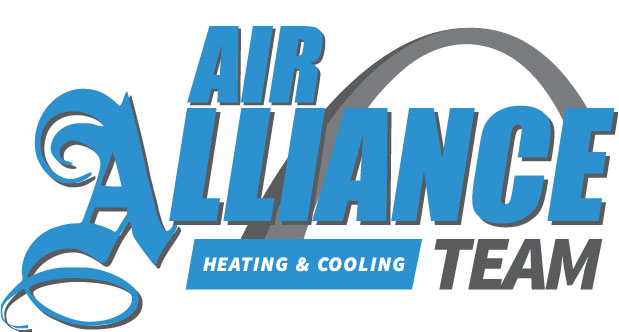
If you’re shopping for an air purifier, you might be finding that some kinds are spouting many claims. And many of those claims could feel too good to be true. So, it’s only natural that you may be wondering are air purifiers a waste of money.
They’re worth it, according to the EPA, since they’re a fantastic way to improve your Ballwin and St. Charles residence’s indoor air quality. Modern residences are securely sealed and thoroughly insulated, which is fantastic for energy efficiency, but not so good for indoor air quality.
As updated residences don’t naturally allow in as much fresh air as old homes, pollutants including dust, pet dander and cleaning products can build up indoors. The result? Air that’s more contaminated than the outdoors, which is bad news if you have allergies, asthma or are susceptible to respiratory irritation.
Our indoor air quality pros at Air Alliance Team can help you cut through the clutter and find the best home air purifier. Just contact us at 636-206-4584 and we’ll be happy to help. For now, learn more about how air purifiers work, their perks and our advice to help you choose the ideal air purifier.
How Does an Air Purification System Improve Indoor Air Quality?
Most home air purifiers use a fan to collect air. Then, the air passes through one or more filters to catch irritants before being redistributed.
These filters can have a charcoal filter, to remove odors, and a HEPA, or high efficiency particulate air, filter. A HEPA filter is at least 99.7% effective at capturing microscopic particles as little as .3 microns, such as dust, pollen, mold and some bacteria.
An air purifier can be lightweight and used to treat a single space. Or they can be added to your HVAC system, giving strong filtration for your total home.
The EPA says it’s important to know that air purifiers can’t remove every contaminant from your residence’s air. But when used along with an improved filter for your HVAC system, they can considerably lower the concentration of indoor air pollution.
4 Benefits of Air Purifier Installation
Getting an air purifier for your home can offer lots of good health advantages. Here are just a few of them.
1. Decreases Allergy and Asthma Triggers
Air purifiers decrease irritants in your house, like some of these typical triggers:
- Dust
- Pollen
- Mold
- Volatile organic compounds, such as cleaners, air fresheners and personal care products
2. Lowers Other Symptoms Related to Poor Indoor Air Quality
Even if you or someone in your home doesn’t experience allergies or asthma, an air purifier can alleviate other symptoms related to poor indoor air quality. These include:
- Scratchy throat, eyes, nose or skin
- Headaches
- Sneezing and coughing
- Fatigue
- Dizziness
- Nausea
It can be tricky to determine symptoms associated with indoor air quality, since they can be triggered by many other illnesses. However, if you’re noticing that symptoms lessen after you leave your residence, your indoor air quality is probably causing trouble.
3. Eliminates Odors
Persistent odors, including cigarette smoke or cooking smells, can be tough to eliminate. If you are having a hard time with eliminating heavy smells in your residence, our pros advise buying an air purifier with a charcoal or activated carbon filter.
4. May Decrease Your Likelihood of Getting Sick
An air purifier can eliminate some bacteria and viruses under certain airflow conditions, keeping you and your family in better health especially during colder months. To take complete advantage of this benefit, our professionals advise a UV air purifier. Disinfecting ultraviolet light delivers an added layer of safeguard against airborne pathogens.
Air Purifiers to Avoid
You’re better off without some air purifiers. Here are a few styles to stay away from when selecting a system for your house:
- Creates ozone. Some air purifiers create ozone, which can irritate your lungs. The EPA recommends staying away from ozone air purifiers.
- Doesn’t use HEPA filters. For the best outcome, you’ll want a HEPA air purifier. Regarded as the gold standard for clean air, HEPA filters are used in the majority of healthcare settings, like hospitals.
- Only purifies a single room. We recommend installing a whole-house air purifier, which filters the air across your home. This solution operates alongside your heating and cooling system.
When you call the indoor air quality experts at Air Alliance Team, we make it simple to select the best air purifier for your residence. Reach us at 636-206-4584 to get started breathing cleaner air right away!
